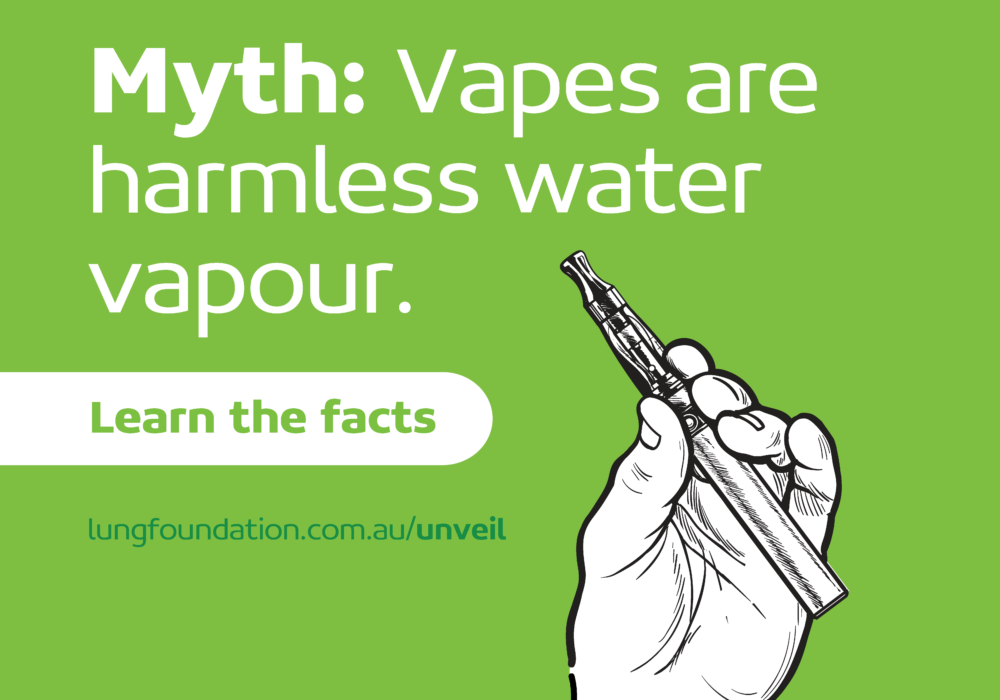Unveil what you inhale
What is vaping
Vaping is the act of using an e-cigarette, or ‘vape,’ which are lithium battery-powered devices that use cartridges filled with liquids, or ‘juice.’ The liquids typically contain nicotine, artificial flavourings, and various chemicals, some of which have been shown to be toxic. The liquid is heated into an aerosol, or vapour, and inhaled into the user’s lungs.
Vaping and young people
E-cigarettes can serve as a “gateway” to nicotine addiction and tobacco cigarette smoking. There have been many studies which found experimentation with e-cigarettes encouraged the use of tobacco cigarettes, particularly among young people. According to the Australian Bureau of Statistics, more than 1 in 5 (21.7%) young Australians aged 18-24 and 7.6% of 15-17-year olds have used an e-cigarette or vaping device at least. It’s likely that these figures are under-reported because responses were provided by an adult living in the same household.
Vaping in Australia
It is illegal to use, sell or buy nicotine for use in e-cigarettes to anyone in Australia without a prescription. With the exception of Western Australia, each state and territory permit the sale of vapes and e-cigarettes, but not the sale or purchase of liquid cartridges that contain nicotine. For this reason, many users purchase their products and liquid cartridges online. These products are often imported from overseas, meaning there is little control over how they are manufactured and what they contain.
Health impacts of vaping
Vaping is unsafe and potentially dangerous. While the long-term health effects are unclear, we do know that vaping in the short-term has been associated with nausea, vomiting, mouth and airway irritation, chest pain and heart palpitations. There is a common misconception that vaping is merely harmless water vapour — in fact, it’s an aerosol made up of toxic particles.
These aerosols contain and emit many harmful compounds, including:
– Formaldehyde and acrolein, which can cause irreversible lung damage
– Propylene glycol, which is toxic to human cells
– Nicotine, which is highly addictive and can harm the still-developing adolescent brain, particularly in areas that control attention, learning, mood and behavioural control.
For further information and support contact Lung Foundation Australia
- Free call 1800 654 301
- Visit E-cigarettes and vaping

